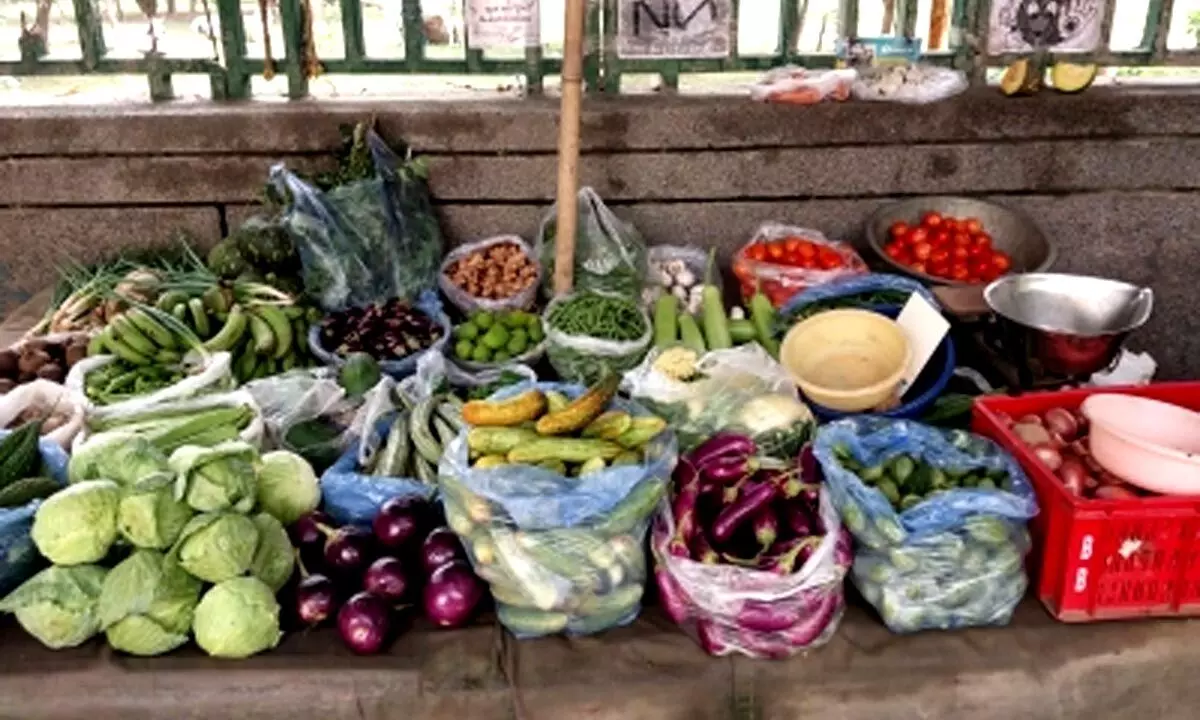Rajamahendravaram: Consumers feel heat as vegetable prices soar

For representational purpose only
- Tomato price shoot up to Rs 100 to Rs 120 per kg
- Farmers lament that traders purchase vegetables at lower prices from them and sell the same at higher rates to consumers
Rajamahendravaram (East Godavari district): Vegetables prices have gone up due to insufficient rains, across the joint districts of Godavari. Though the recent rains cooled off the people, the prices that were doubled are giving heatwaves to the consumers.
In Rajamahendravaram for the last two days, the price of the most used vegetable, tomato, has gone up to Rs 100 to Rs 120 per kg. Green chillies are being sold at Rs 120 per kg, cluster beans at Rs 120 per kg and beans at Rs 125. Ginger rate at Rs 200 per kg is giving shock to consumers.
Capsicum price is Rs 80 per kg and the prices of other vegetables like okra, brinjal and ridge gourd have also increased by 150 to 200 per cent compared to last week.
Farmers have taken up vegetables cultivation on a large scale in Korukonda, Gokavaram, Kovvuru, Gopalapuram, Nallajarla, Kadiam, Rajahmundry rural and other mandals of East Godavari district. But crops were dried up as rains are not yet started, incurring loss to farmers, said Srinivasu of Kadiam village. Farmers said that earlier they had the opportunity to use canal water. But now vegetable cultivation has become completely rain-fed since canal water was diverted for Kharif season.
Regardless the farmers’ problems, traders are exploiting them for their profits. Farmers from Korukonda area - Chalamayya and Maddala Venkateshulu said that they are selling the existing crop to the traders, despite the investment recovery.
A farmer, Kalyanam Raju, said that they will sell the existing crop to traders to recover the losses. He lamented that traders will pay less to the farmers and sell the same to consumers for huge profits.
Even Rythu Bazaars are selling vegetables at the same prices as in the open market.








